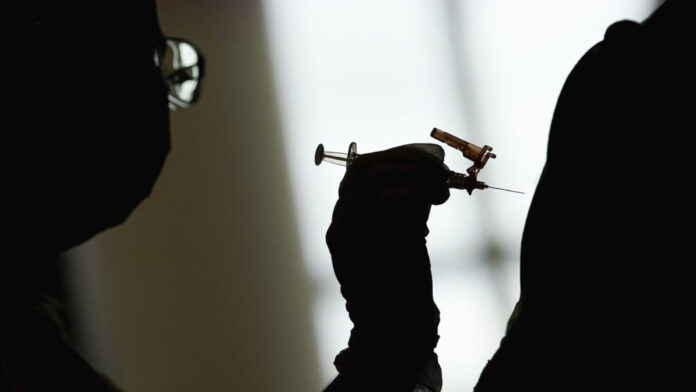"A Dangerous Gamble: Kennedy’s Halt on mRNA Vaccine Funding Puts National Security at Risk"
Health Secretary Robert F. Kennedy Jr. Halts mRNA Vaccine Development, Raising Concerns Over National Preparedness
Date: [Insert Date]
In a controversial move this week, Health Secretary Robert F. Kennedy Jr. announced the discontinuation of funding for the development of messenger RNA (mRNA) vaccines, a decision that has sparked alarm among scientists and public health experts. This decision not only raises questions about the nation’s readiness for future pandemics but also poses potential risks to national security.
Implications for Pandemic Preparedness
The Biomedical Advanced Research and Development Authority (BARDA), the division responsible for developing medical countermeasures against both natural and bioterror threats, will cease its funding for mRNA vaccine projects. This decision follows Kennedy’s earlier cancellation of a $766 million contract with Moderna aimed at developing vaccines for flu viruses that could potentially trigger pandemics. Experts argue that these actions could significantly delay the United States’ response to emerging infectious diseases.
Stephen Morrison, director for global health policy at the Center for Strategic and International Studies, expressed grave concerns about the implications of this decision. “We’re unilaterally disarming ourselves in a period in which bio threats are continuing to proliferate,” he stated. Morrison emphasized that the dismantling of institutional and technological capabilities essential for pandemic preparedness could endanger American lives.
The Role of mRNA Technology
The rapid development of COVID-19 vaccines in 2020 showcased the potential of mRNA technology to expedite vaccine delivery. Unlike traditional vaccine platforms, mRNA vaccines can be designed and produced more quickly, allowing for a faster response to emerging pathogens. Experts argue that halting funding for mRNA research could leave the U.S. vulnerable to both natural outbreaks and bioterrorism threats.
Kennedy’s announcement included several claims regarding the safety and effectiveness of mRNA vaccines, which have been instrumental in the global response to the COVID-19 pandemic. These claims have been met with skepticism from the scientific community, which emphasizes the extensive research supporting the safety and efficacy of these vaccines.
Current State of National Security
The timing of Kennedy’s decision is particularly concerning given the current state of the White House’s pandemic preparedness apparatus. The Office of Pandemic Preparedness and Response Policy is currently leaderless and effectively unstaffed, raising alarms about the U.S. government’s ability to respond to future health crises. Morrison noted that the dismantling of both human and technological resources necessary for pandemic response could have dire consequences for national security.
Conclusion
As the world continues to grapple with the aftermath of the COVID-19 pandemic, the decision to halt funding for mRNA vaccine development raises significant concerns about the United States’ preparedness for future health emergencies. Experts warn that this move could not only hinder the nation’s ability to respond to natural outbreaks but also leave it vulnerable to potential bioterrorism threats. The implications of this decision will likely reverberate through public health and national security discussions for years to come.
For ongoing updates and in-depth analysis, stay tuned as this story develops.
